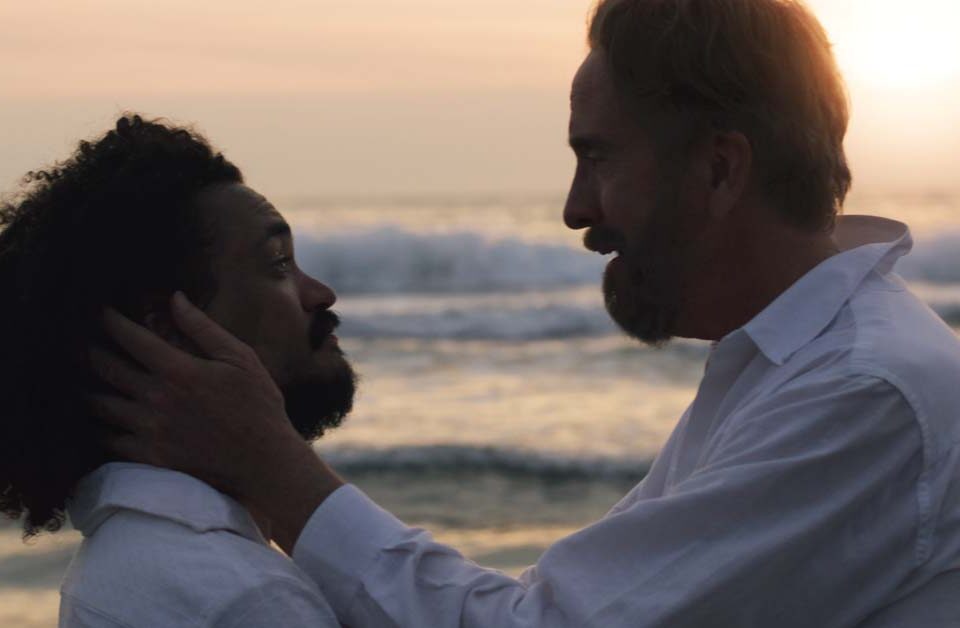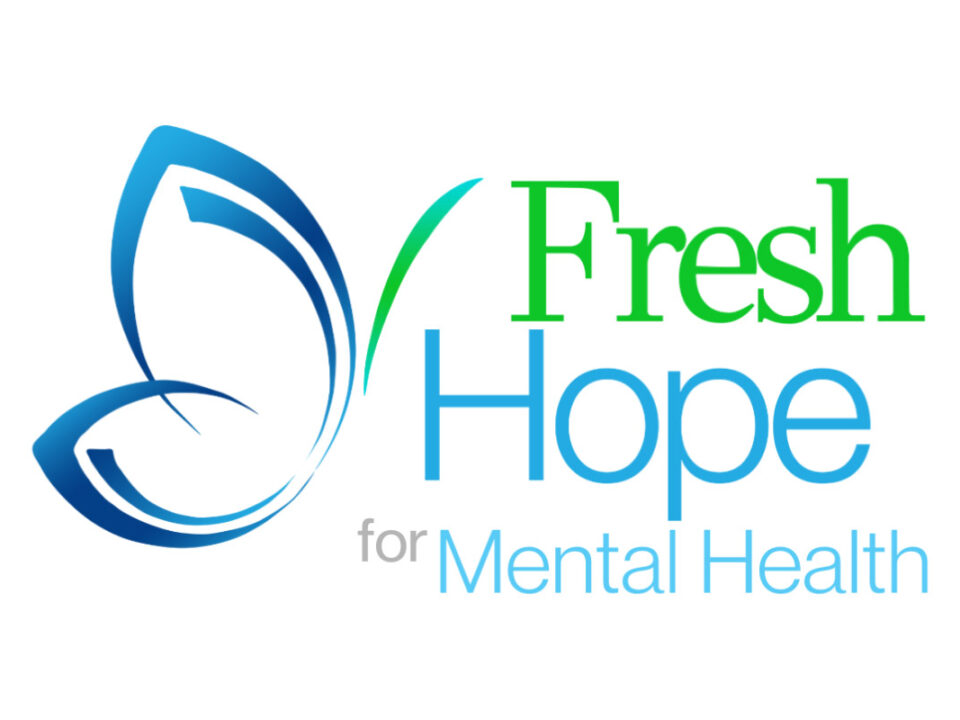ORLANDO — Like so many parents, we all want what is best for our kids. We desire nothing more than they get the best education, have the best teachers and coaches, and be exposed to the best of the best whatever that best might be.
But sometimes, despite our best intentions, life doesn’t always work out the way we envisioned it for our children. Perhaps an untimely divorce drives a wedge into their upbringing, exposure to drugs or alcohol derails their innocence, or an unforeseen disease impedes their development.
For award-winning filmmaker Cristobal Krusen it was learning that his son suffers from a debilitating mental disorder known as schizophrenia. Due to its devastating effects, his son has spent the majority of his life in mental institutions.
In an effort to bring more awareness to the issues surrounding mental illness and dispelling the stigma surrounding the disease, Krusen has written and directed Let Me Have My Son, a feature length film that explores his own personal father and son story.
Highly sensitive and viscerally raw, Let Me Have My Son explores Krusen’s decades long battle with coming to grips with his son’s mental disorder, finding hope, and believing God even when the prognosis seems grim.
I recently sat down with Krusen to discuss why he chose to make a movie that was so personal to him, his advice for how to best support families who are struggling with these types of mental disorders, and why he never gave up on God as he and his family battled to be the best support system for their son as possible.
For every filmmaker, there always seems to be a trigger point, an event or something happens in your life, that says you need to create or produce this story! What was that for you with Let Me Have My Son?
Well, in the case of this film, it’s really the culmination of many years of living with mental illness in my family. Most specifically the schizophrenia that my son Daniel has suffered from and trying to find him help. It led to me writing a book about it, which is a collection of prayer letters over the years and the tipping point for making the movie.
It really grew out of the conviction that by telling this story, I would be able to help other people who are going through their time of trial, perhaps with mental illness, but perhaps with something else. Art often cross pollinates and doesn’t necessarily just work in the area where you think it will. But somebody who’s going through a grieving process, perhaps they’ve lost a loved one, I think would be benefited by the film. And so it grew out of that conviction that God is near to the brokenhearted, but the brokenhearted need to feel that touch from God too. And I hope that’s what the film can do, that it can act as God’s touch.
As you have mentioned, I understand that the origins of this film actually came from a book you wrote. This book, also called Let Me Have My Son, is a bit more autobiographical, filled with prayers for your son. Can you share what inspired you to write the original book?
The prayer letters were emails that initially were emails that I sent to just a small group of friends because I was in such a desperate way and needed prayer. I felt I needed prayer support. So, I just started sending out sort of an update initially about my son saying what the needs were, will you please pray? As the years passed, those prayer letters became more nuanced, more involved, and more intricate. More people joined the prayer group so that they almost became reflections as well as prayer requests and prayer needs. And so the book is really meant to be edifying in a general sense as well.
Changing gears, what was your first thought when your son was diagnosed with schizophrenia?
I think my first thought was denial. No, it can’t be. And then my second thought was we will take care of this through spiritual resources. We will call down the power of God and everything will be made well. And then when that didn’t happen right away, I became angry. I’m sure I felt disappointed, even betrayed because I had become a believer in Jesus Christ at the age of 29. And this child was born a year later. When I’m 30, we dedicated him to God from the womb. And so my reaction is, ‘God, you’ve let me down. He was dedicated to you. Why is this happening?’ But not unlike the Psalmist who pours out his complaint to the Lord, I worked my way back eventually by the end of the Psalm, to all praise and honor be unto you, Lord God. So, all of those phases were transitory. And where I am now is at a place of peace and expectation. My son is actually going to be discharged very soon from the hospital where he has been for more than 12 years. And the prayers of years and years ago are being answered. They were always being answered.
What can we, the average person, do to help support families who are struggling with these types of mental disorders?
I will tell you unequivocally, the very best thing and most important thing that you can do to help someone struggling in this area is first, listen to them. Listen. Be in their presence. Weep with them. The Bible says weep with those who weep. Often, they just want someone who will take some time and be patient with them, listen, and treat them as another person, a human being.
And that’s so hard to do sometimes because your mind says, I’m trying to help, so I need to talk, and I need to ask questions. I need to do this, that, and the other thing. But really, like you said, you should just let the person affected by it let you know how you can best help.
Yes. Typically a person who’s dealing with a mental health crisis has no one that is willing to just be in their presence, sit with them, and be with them. The friends of Job, who were ultimately criticized by God for not answering him the way they spent seven days in silence. They saw how afflicted he was by everything that had happened to him. They didn’t presume to speak, offer a solution, or a cure immediately. And to me, that’s the first step. The first step is to treat people suffering with a mental health disorder as fully human, in need of compassion and time.
The film is beautiful, artistic, and full of symbolism. Why was it important for you to share your story as a dramatization rather than a documentary?
Yes. It was more important for me to do it that way because a documentary would’ve been obliged to stick to the facts as they were or are understood. And I was less interested in that approach than I was the spiritual approach, the emotional, psychological, and the artistic presentation. I believe it was Robert Frost who said, and I’ll have to paraphrase. But he said, “Poetry is emotion, looking for words to express itself.” And what I wanted to do in this film was capture those emotions first and foremost.
You wrote, directed, and played the lead role in this movie. I’m sure that adds an extra layer of complexity as I’m guessing that this role tore you apart emotionally at times.
Yes. I remember toward the end of shooting, I was just exhausted because of what you just said. I had written the screenplay, but I was directing, producing, acting, all of these responsibilities and I was exhausted. I was kind of slumped forward in the chair. In fact, I was sitting in a wheelchair but that was for the movie. It required me to be in a wheelchair. And I sat quietly and prayed, ‘Lord, I’m not so sure I know what I’m doing anymore, but I know this. I wrote a good script.’ And I felt God tell me at that moment, rest on the script. The script is the backbone and it’s a good script. It’ll be okay because the script was good. So, even though I was feeling depleted, I knew the script was good. And so, that’s what I drew strength from.
How is your son doing now? The scenes of the two of you at the end of the film are just very touching. How is he doing today?
He’s doing so much better. It’s almost unbelievable because he’s now on the verge of being discharged from the hospital he has been at for quite some time. A group home has been picked out. He’ll have the supervision he needs, but he’ll have much more freedom. We’ll be able to be with him as a family. He’ll be able to come over for Sunday dinner. We’ll go see movies together. It’s just a whole new horizon opening up for him and for the family.
After people have seen, Let Me Have My Son, what would you like to see audiences get out of the viewing experience? What is your greatest hope for the film?
My greatest hope is that there will be people in the audience who will feel this movie was made just for them. That they will receive it as a gift. And I truly believe that through the Holy Spirit, which I believe inhabits the film, it could communicate with them when they watch the film, and that they will receive it personally as a blessing and a gift to comfort their heart.
Read the Full Article on Crossmap




